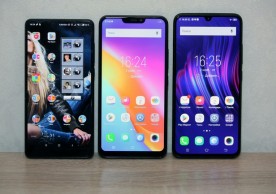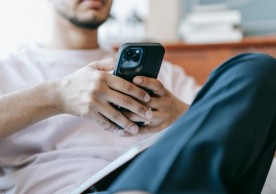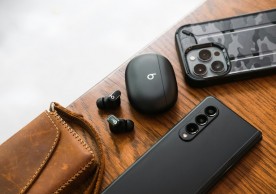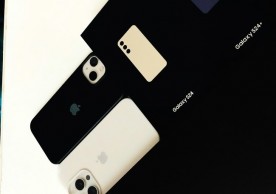Oracle kicked off a high-stakes trial in a federal district court in San Francisco, Monday, claiming that Google has deliberately stolen a key piece of technology and used it to build its highly popular Android software, which now powers more than 300 million smartphones and tablets.
Oracle filed a copyright infringement lawsuit against Google in August 2010, claiming that Google's Android operating system infringes Java patents and copyrights Oracle had acquired when it bought Sun Microsystems.
Google has denied the accusations and argued that it doesn't need a license for the parts of Java it used. According to Google, the APIs it used cannot be copyrighted because it would be like copyrighting a technique used to perform a task, and techniques are not legally considered intellectual property.
In an hour-long opening statement, Oracle attorney Michael Jacobs pledged Oracle "will prove to you from beginning to end...that Google knew it was doing the wrong thing," arguing that Google knew all along it was stealing Oracle's technology. "This case is about Google's use, in Google's business, of somebody else's property without permission," said Jacobs. "You can't just step on someone's IP because you think you have a good business reason for it."
Commercial Advantage
Jacobs told the federal jury that Google knew since 2005 that it had to license the Java programming language in order to develop its Android software, but failed to do so because it didn't want to share portions of the popular mobile OS. Using Oracle's Java ensured the Android software would appeal to programmers who write applications for smartphones, thus giving Google a commercial advantage, added Oracle's attorney. "Google makes a lot of money from Android, and a portion of that money is Oracle's."
The two-month trial, which started on Monday, will include testimonies from the two companies' chief executives, Oracle's Larry Ellison and Google's Larry Page, as well as depositions from damages experts appointed by both sides and the presiding judge. Oracle is seeking $1 billion in damages.
Incriminating Emails
Jacobs cited several emails that allegedly prove Google's top executives were well aware they needed a license for Java, the "open source" language that works across various computer systems. "My proposal is that we take a license," reads an October 2005 email by Google senior VP Andy Rubin, shown to the jury.
In another email shown to the jury, dated February 2006, Google engineer Tim Lindholm said that Google was in negotiations for a Java license. According to Jacobs, Google did not agree on a type of license that would allow the company to use Java code and write new code on top of it, code that "you have to give back to the community," which Google did not do. "You can't keep it for yourself," added Jacobs. "They broke the basic rules of the Java programming community."
Another email presented to the jury showed one Google executive telling another to "scrub out a few more Js" from Android code. Jacobs told the jury the J stood for Java. Moreover, Oracle's attorney also presented an April 2011 videotaped deposition to the jury, in which Google's Rubin said that Google does not make money off Android. Jacobs fought this claim with a transcript from an October earnings call, in which Google Chairman Eric Schmidt said "people who use Android search twice as much as everything else."
"Not only is there more searches, and there's more ads, but it's also more lucrative," Schmidt explained. "So, on this basis alone, Android is hugely profitable."
Three-Phase Trial
In addition to the $1 billion in damages, Oracle is also seeking a court order blocking Google from distributing Android without a license. The two-month trial will consist of three phases. The first phase will deal with copyright infringement allegations, the second one will deal with patent claims and the third phase of the trial will be reserved for damages, should the jurors rule in Oracle's favor.
Google denies the copyright infringement charges, arguing that it used application programming interfaces - APIs, a technology that is not covered by copyright. The Mountain View, California-based company added that its use of parts of Java was fair and legal.
"Computer programming languages are not copyrightable, and neither are Oracle's APIs," argued Robert van Nest, an attorney for Google. "Oracle accuses Google of infringement for doing what the Oracle API specifications describe. That is a classic attempt to improperly assert copyright over an idea rather than expression." The case is Oracle America Inc. v. Google Inc., 10-03561, U.S. District Court, Northern District of California (San Francisco).
most read
more stories from Reviews
-
Top 6 Underrated Smartphones You Should Consider
Discover the hidden gems! Explore our list of the top 6 underrated smartphones you should consider now.
ernest hamilton -
Top 6 Water-Resistant Phones of 2024: Perfect for Any Adventure
Explore the top 6 water-resistant phones of 2024, designed to withstand any adventure. Stay connected, rain or shine!
ernest hamilton -
Top Smartphones 2024: Best Choices for Music and Movie Enthusiasts
Discover the top smartphones of 2024 tailored for music and movie enthusiasts. Elevate your entertainment experience today!
ernest hamilton -
Top 5 Android Phones for Students in 2024: A Comprehensive Guide
Discover the top 5 Android phones tailored for students in 2024! Don't miss out on this comprehensive guide to find the perfect device for your academic journey.
ernest hamilton -
Samsung Galaxy S20 FE 5G vs. iPhone 13: Choosing the Best Phone for Teens
Deciding between Samsung Galaxy S20 FE 5G and iPhone 13? Find the best phone for teens with this detailed comparison.
ernest hamilton -
Coachella 2024: From Paying, to Finding Music, Here Are 5 Apps You Need For The Festival
Prepare for Coachella 2024 with these 5 must-have apps, from payment solutions to music discovery. Enhance your festival experience now!
ernest hamilton -
8 Parent-Approved Phones for Kids and Teens
Discover 8 Parent-Approved Phones for Kids and Teens! Make the right choice for your child's first smartphone. Read our guide now!
ernest hamilton -
Samsung Galaxy S24 Plus vs. iPhone 15 Plus: Clash of the Flagship Titans
Galaxy S24 Plus vs. iPhone 15 Plus: Clash of flagship titans! Explore the battle between Samsung's latest Galaxy and Apple's upcoming iPhone. Discover which reigns supreme!
ernest hamilton













